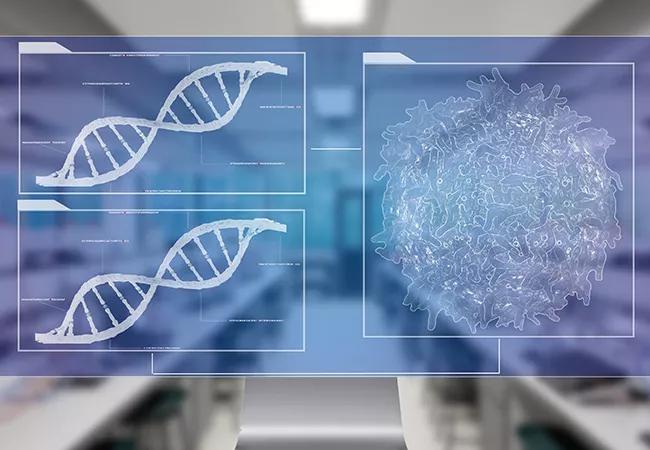Cleveland Clinic researchers receive $2 million grant from the National Institutes of Health

Studying the relationship between autism spectrum disorder (ASD) and cancer in individuals affected by PTEN hamartoma tumor syndrome (PHTS) is the subject of a new $2 million grant awarded from the National Institutes of Health to renowned cancer geneticist and cancer genomic medicine specialist Charis Eng, MD, PhD, Chair of the Genomic Medicine Institute.
Advertisement
Cleveland Clinic is a non-profit academic medical center. Advertising on our site helps support our mission. We do not endorse non-Cleveland Clinic products or services. Policy
Since her initial discovery of the PTEN gene as a cancer predisposition gene nearly 25 years ago, Dr. Eng has gone on to link its mutations to the multiple, seemingly disconnected disorders that are now hallmarks of PHTS – including at least six types of cancer, four neurological disorders and four overgrowth disorders.
Individuals affected by PHTS may experience any combination of a large list of symptoms at any severity, including a greater risk of developing cancer. Females with PHTS, for example, have an 85% risk of developing breast cancer, compared to a 12% risk in the general population.
Having established the overall risks those with PHTS face, Dr. Eng’s next endeavor is beginning to target individual risk.
Her aim is to identify specific markers physicians can use to identify “at-risk” individuals who are more likely to develop cancer or are more likely to present with ASD. Early detection and intervention are key for both conditions, and a simple test that caregivers can perform immediately upon diagnosing a patient with PHTS will allow for the development of improved, more personalized care plans.
“Research is slow, but knowledge is power,” says Dr. Eng. “Now that we know that mutations in PTEN are responsible for so much, we can start looking into how and why this happens.”
Dr. Eng believes there are detectable factors within a patient’s body that “talk” to the inherited PTEN mutation that can help determine what symptoms they may exhibit. Her team will perform patient-focused research, where she will study plasma, cells and DNA isolated from individuals living with PHTS and from their families to find differences between patients who are more or less likely to develop cancer, experience ASD or both.
Advertisement
“To predict outcome at an individual level would be a triumph for personalizing healthcare – not just for PHTS but many inherited cancer syndromes,” she says.
Different parts of our DNA (genes) contain the blueprint for proteins that each perform a specific task. PTEN acts as a master switch that regulates whether a cell will carry out many of these tasks. Experts still don’t know exactly why different individuals with PHTS can experience a wide array of symptoms, or develop cancer or present with ASD, while others do not.
If a cell senses that its DNA has been damaged – something that can result in malfunctioning proteins – PTEN will receive a signal that tells it to activate DNA repair proteins. If a cell divides too quickly, a major cause of tumor formation, PTEN will deactivate proteins involved in cell division and replication. Different mutations in the gene encoding the PTEN protein can cause a specific problem in the body.
Dr. Eng’s first major PTEN breakthrough occurred in 1997 when she and her group discovered that the inherited overgrowth disorder Cowden Syndrome was caused by mutations in the PTEN gene. That discovery marked the beginning of a 25-year-and-counting research program.
Dr. Eng currently has another ongoing NIH U54-funded clinical study focusing on patients with PTEN-ASD and non-PTEN-ASD to better understand the differences between the two groups.
Editor’s Note: This article was published originally by Cleveland Clinic Lerner Research Institute.
Advertisement
Advertisement

Center for Autism to provide social, educational and skills-based program for families

Education for medical caregivers and families is part of the package

Cleveland Clinic Children’s Center for Autism offers comprehensive consultation services

Realistic scenarios stress importance of soft skills

Recommendations on identifying and managing neurodevelopmental and related challenges

Genetic variants exist irrespective of family history or other contributing factors

Percutaneous stabilization can increase mobility without disrupting cancer treatment

New guidelines update recommendations